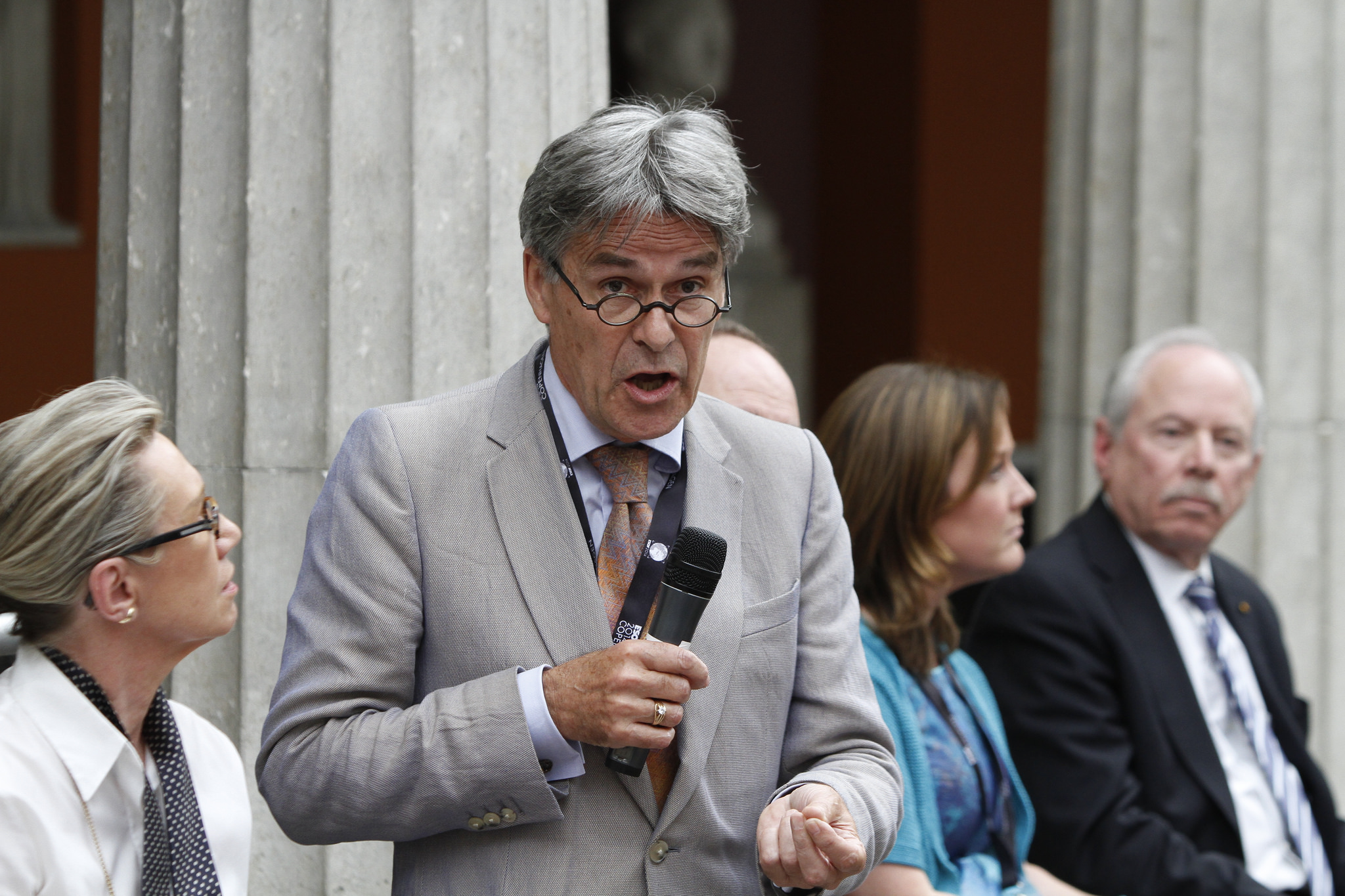"Contributing to the goals of a sustainable future is an urgent and inspiring task for universities today"

Sijbolt Noorda , president of the Magna Charta Observatory
Theology scholar Dr Sijbolt Noorda is an expert in areas such as teaching and learning in higher education, internationalization practices and ideals, and open science. He is currently president of the Magna Charta Observatory, a foundation that ensures compliance with the principles of the Magna Charta, which include academic freedom and institutional autonomy as a guideline for good governance and self-understanding of universities in the future. With the implementation of its Strategic Plan, the UOC aims to become a global university with a social impact, akin to other international universities that follow the principles contained in the Magna Charta Universitatum.
The UOC's decision to join the Magna Charta, which will be formalized in September 2018, was recently cause for Dr Noorda to visit President Josep A. Planell. We spoke with him in order to get a closer look at the Charta's principles and the role of universities in our society.
Theology scholar Dr Sijbolt Noorda is an expert in areas such as teaching and learning in higher education, internationalization practices and ideals, and open science. He is currently president of the Magna Charta Observatory, a foundation that ensures compliance with the principles of the Magna Charta, which include academic freedom and institutional autonomy as a guideline for good governance and self-understanding of universities in the future. With the implementation of its Strategic Plan, the UOC aims to become a global university with a social impact, akin to other international universities that follow the principles contained in the Magna Charta Universitatum.
The UOC's decision to join the Magna Charta, which will be formalized in September 2018, was recently cause for Dr Noorda to visit President Josep A. Planell. We spoke with him in order to get a closer look at the Charta's principles and the role of universities in our society.
In 2018 the Magna Charta will be 30 years old. Do you think the principles it embodies are still valid and necessary? What makes them important for universities? And for society in general?
Although the (political) environment has changed in many places, the Magna Charta of 1988 is as valid and urgent now as it was at the time. The central mission of universities, in education as well as in research, is about the future of our societies and a sustainable life on our planet. To be able to do this well universities must have autonomy and should be honouring principles of integrity and equity. Only in this way they can be of real support to society.
One of the UOC's objectives is to make itself a global university that has a social impact. Given your knowledge of universities around the world, could you tell us about any of the trends that universities follow to find their role in society? Do you believe that universities have become more interested in reinforcing their social presence?
Worldwide I see very diverse trends. On the one hand there is a clear tendency towards a stronger social responsibility. Goals like Unesco's Sustainable Development Goals are inspiring higher education and research communities in many places. Social innovation and what universities can do to make this happen is a reality elsewhere. On the other hand I see movements towards stronger political control, limiting the freedoms of universities and using a political agenda as a steer for academic strategies. In some countries there is a clear risk that universities are seen as siding with societal elites rather than with society as a whole. There the principle of equity suffers, in terms of university access as well as of research programmes and benefits. At the end of the day, each institution clearly has the responsibility to make the right choices and decide what it should do and can do given the challenges of its own societal context. In my view contributing to the goals of a sustainable future, both at the local and regional and at the national and international level, is an urgent and inspiring task for universities today. Universities should work on this in freedom, with a great sense of responsibility, honouring principles of equity and integrity.
Beyond their institutional commitment to the Magna Charta's principles, what else can universities do to encourage its values?
We at Magna Charta Observatory would like to see universities seriously reflect on their values, in terms of mission statements and choice but above all in practice. Which values are shared by the academic community? On which value base are educators and researchers making their programme choices? How are values being integrated in the curriculum and in what way are students developing the core values and virtues they will need in their professional life? Magna Charta is about to present a new tool (called Living Values) that is designed to assist universities in this kind of self-reflection. The project is now in its pilot phase. At the anniversary conference in Salamanca (September 2018) we hope to be able to present it to our community.
Press contact
-
Editorial department
